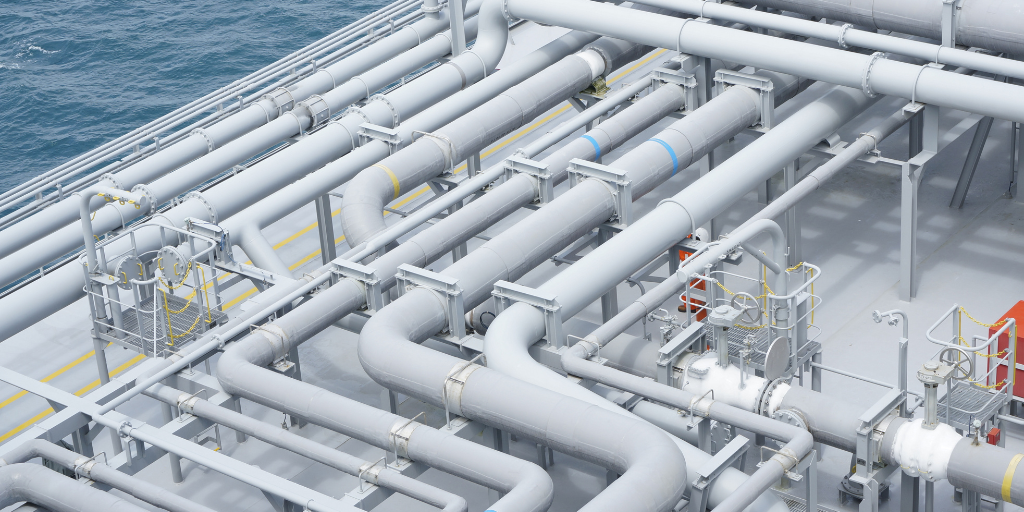Montenegrin NGOs counter Varhelyi pledge on LNG terminal
27 civil society organisations have sent a joint letter to the European Commission President Ursula von der Leyen, (1) questioning a recent statement by Enlargement Commissioner Olivér Várhelyi that the EU would help Montenegro to build a liquified gas (LNG) terminal at the port of Bar (2), and calling on the EU not to support the project.
24 October 2023

Montenegro is not connected to international gas networks and uses only small volumes of the fossil fuel, putting it in a more favourable position for decarbonisation than the EU, which is struggling to free itself from fossil gas imports after Russia’s invasion of Ukraine.
The Western Balkan countries as a whole are much less gas-dependent than the EU (3) and have committed to phase out fossil fuel use by 2050 (4). But as explained in the letter, the LNG terminal, if built, would create a carbon lock-in for Montenegro, that the country would not be able to resolve before the 2050s.
A whole network of new pipelines would need to be built, with the government also proposing three new gas power plants. It is unrealistic that Montenegro, based on its size, limited institutional capacity and empty state coffers, would be able to make another transition from gas towards renewables by 2050. Yet the European Commission has in recent years actively encouraged increasing fossil gas consumption across the Western Balkans (5).
Nataša Kovačević of CEE Bankwatch: ‘We hope Commissioner Várhelyi’s statement does not represent the European Commission’s stance on the Montenegro LNG project – he has already recently been caught speaking without first consulting his colleagues (6). But the fact remains that the Commission’s support for increasing fossil gas use in the Western Balkans is irresponsible and counterproductive. Our low gas dependency is a plus, not a minus, in a future based on electrification of heating and transport.’
Diana Milev-Čavor of Eco-Team: ‘It makes no sense to increase our energy import dependence, irrespective of the source of the gas. Just as the EU is finally realising that its own energy system cannot be based on fossil gas imports, the Commission must urgently help to stop the Western Balkans repeating this expensive mistake. New infrastructure will end up either as stranded assets or as a fossil gas lock-in that will hinder renewables development in the region.’
Zenepa Lika of Dr Martin Schneider-Jacoby (MSJA): ‘An energy-efficient transition to 100 per cent renewables can happen relatively quickly in Montenegro if the political will is there. The European Commission and other international donors must focus on tackling electricity distribution losses, increasing the use of heat pumps and solar, innovative heat storage technologies and deep renovation of residential buildings instead of diverting attention and funding with fossil gas.’
Contacts
Natasa Kovacevic, Campaigner for Decarbonisation of District Heating in Western Balkans
natasa.kovacevic@bankwatch.org
+382 67 030 033
Pippa Gallop, Southeast Europe Energy Advisor, CEE Bankwatch Network
pippa.gallop@bankwatch.org
+385 99 755 9787
Notes for editors
- The letter can be found here.
- Commissioner Várhelyi’s statement can be found here.
- Serbia uses fossil gas for district heating, but use for power and individual households is relatively low. North Macedonia has increased its fossil gas consumption for power and heat in recent years. In Bosnia and Herzegovina, only four towns and cities are connected to the gas network, while Kosovo, Montenegro and Albania hardly use gas at all and do not have functional distribution networks. The Trans-Adriatic Pipeline crosses Albania but so far provides no gas to the country.
- Sofia Declaration on the Green Agenda for the Western Balkans, 10 November 2020. The Declaration includes a pledge to adopt the EU Climate Law, which makes climate neutrality by 2050 a legal obligation.
- E.g. The European Commission’s 2020 Economic and Investment Plan for the Western Balkans overtly promotes gas. It claims – without providing any evidence – that new gas pipelines could later be used for renewable gas.
- Last week, over 70 MEPs asked for Commissioner Várhelyi’s resignation after he misleadingly announced the suspension of “all payments” to the Palestinian authorities following Hamas’ terrorist attacks on Israeli civilians.
Never miss an update
We expose the risks of international public finance and bring critical updates from the ground – straight to your inbox.
